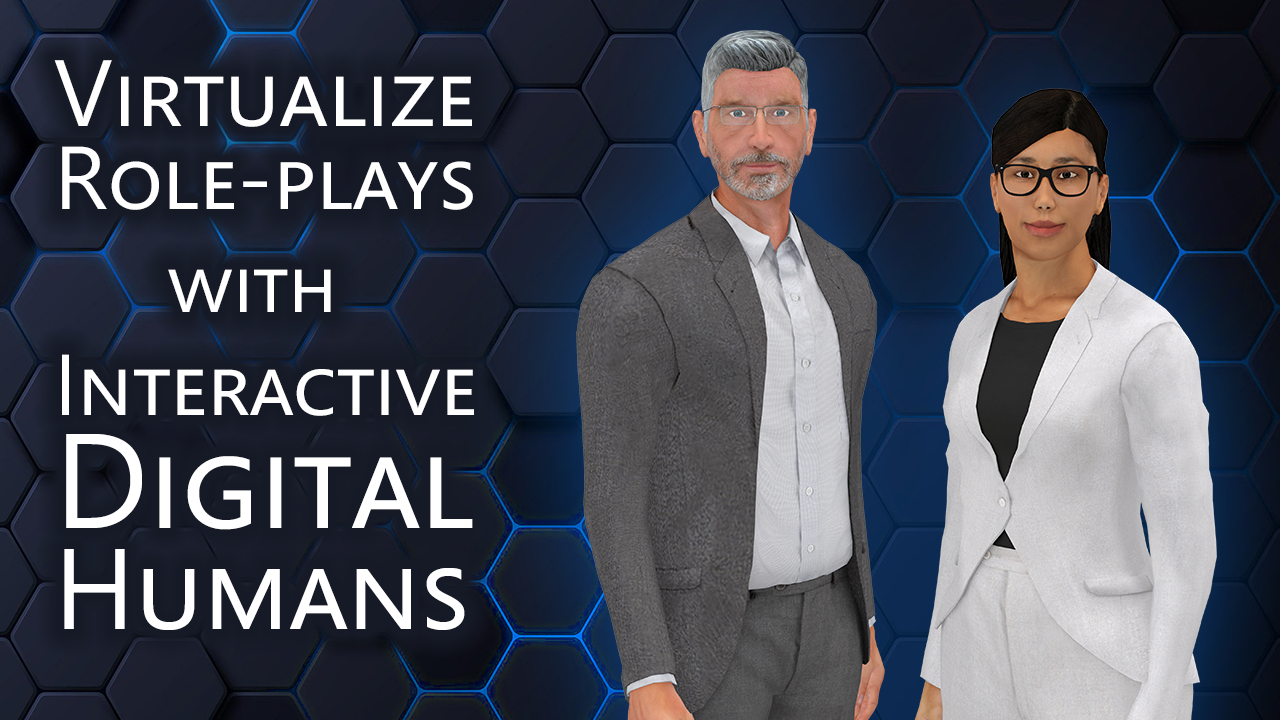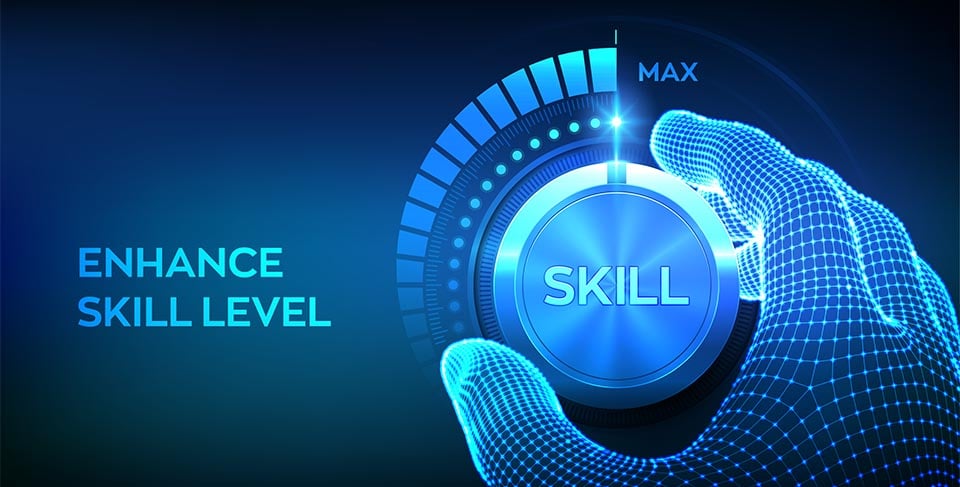Join us to explore a new framework of mental model-driven educational design that will improve outcomes within any program, and optimize educational investments.
Mental Models: The Secret to Effective Education and Training Outcomes
By Douglas Seifert, PhD on Dec 6, 2023 3:13:54 PM
5 Advantages of Virtualizing Role-Plays with Digital Human Technology
By Douglas Seifert, PhD on Jul 22, 2022 10:40:07 AM
Yes, peer-to-peer training role-plays can be a bit awkward. What if we could immerse trainees in situational decisions with interactive digital humans instead? And what if we could combine these virtual interactions with skill development methodologies, and analytics? In this article we will explore doing just that. We will cover: when skill development is important, the advantages of virtualizing role plays, how the underlying technology works, and the steps to build your own virtualized role plays.
Let’s get started…
Incorporating Skill Development into Clinical Medical Education via Corrective Mentoring
By Douglas Seifert, PhD on Nov 5, 2021 12:02:34 PM
Wouldn’t it be fantastic to have a mentor or coach help you make decisions? Yes! An argument can be made that in a complex area like medicine, mentoring is not a nice-to-have, but is required to achieve meaningful behavior changes in clinical practice. Here, we will explore the value of corrective mentoring within medical education initiatives, show changes in competency within immersive programs using corrective mentoring, and highlight the underlying cognitive science of skill development that drives its effectiveness. Skill development serves as the bridge between “knowledge” and clinically treating patients.
Skill-Driven CME: What We Can Learn from Corporate Training
By Douglas Seifert, PhD on Feb 25, 2021 4:10:37 PM
Successful corporate training is all about behavior change. Employees adopt new behaviors that translate into increased performance and better outcomes. Continuing medical education (CME) has strikingly similar goals. In this first skill-driven CME article, we will explore what has, and has not, worked well in corporate training, and apply these insights to CME.
Call of Duty for Business: How Virtual Practice Can Deliver Performance
By Douglas Seifert, PhD on May 29, 2020 12:54:50 PM
(Originally published in Training Journal)
Training provides knowledge, but without practice, it quickly recedes and becomes a wasted investment. What can we do?
Call of Duty immerses gamers in a realistic virtual experience. Virtual game technologies can be adapted to do the same thing for business people – immerse them in realistic situations where they can safely practice making decisions, and then receive expert feedback and coaching. It’s a perfect fit for many training applications, such as leadership development, or adopting new processes in sales and coaching.
How to Go Virtual with Skill Development Training
By Douglas Seifert, PhD on Mar 23, 2020 4:17:36 PM
Skill development requires intensive interaction, and typically involves one-on-one coaching. Therefore, moving this training online requires a different approach and different tools. E-learning tools, while effective at enabling knowledge acquisition, are woefully inadequate for the task. Good news! There are powerful immersive technologies that effectively move skill development online. In this article, we’ll explore them.
How to Use Virtual Practice Technology to Drive Behavior Change
By Douglas Seifert, PhD on Feb 27, 2020 10:34:55 AM
This article was originally published in Life Science Trainers & Educators Network’s (LTEN) Focus Magazine.
Pulling training concepts through to the workplace is a challenge, particularly in leadership, coaching, and sales. Why? Because workers may “know” the concepts taught but lack the skill and the confidence to use them, once they’re back on the job. So, nothing changes.
Developing skills, particularly these soft skills, requires a different approach. Trainees don’t want to risk failure by trying something new in real situations. That’s where practice comes in. Roles plays at the end of a training session are a start, but they’re not comprehensive enough, nor do they provide the reinforcement weeks after training to drive behavior changes.
Create a Real Conversation – Get the Most Out of Immersive Training Simulations
By Douglas Seifert, PhD on Jan 27, 2020 5:19:04 PM
Why all the interest in simulation for training? Because it has the potential to solve a big problem:
Enable professionals to effectively learn how to use their training knowledge, in real situations, to change their behavior and improve their performance.
We know that one-on-one mentoring and coaching works, but it’s time intensive and doesn’t scale. Simulation technology can serve as a cost-effective surrogate to solve this vexing problem.
Analytics! Get the Most Out of Simulations and Virtual Experiential Training
By Douglas Seifert, PhD on Oct 17, 2019 2:02:03 PM
Do you wish you could measure where your learners struggle with applying their training in real-world situations? Wouldn’t that data be invaluable when considering additional or follow-up programs? Many of your L&D colleagues have the same wish. In this post, you will learn how you can actually obtain this data while substantially boosting the efficacy of your training programs.
Why E-Learning Alone Fails to Transfer - And What to Do About It
By Douglas Seifert, PhD on Jul 30, 2019 11:06:05 AM
Are your e-learning tools - Articulate, Captivate, iSpring, Elucidat, etc. - giving you the results you want? Are your training programs transferring desired behavior changes to the workplace? If not, it’s likely not the fault of the tool. Your instructional designers may just be expecting more from a tool than it was designed for… like asking a car to fly.
This article will explore why e-learning tools alone do not deliver effective knowledge transfer. Our goal is to show how immersive virtual practice and coaching in realistic environments can facilitate successful transfer to the workplace. We’ll also demonstrate how to solve a common L&D challenge using a 3D immersive learning platform.











